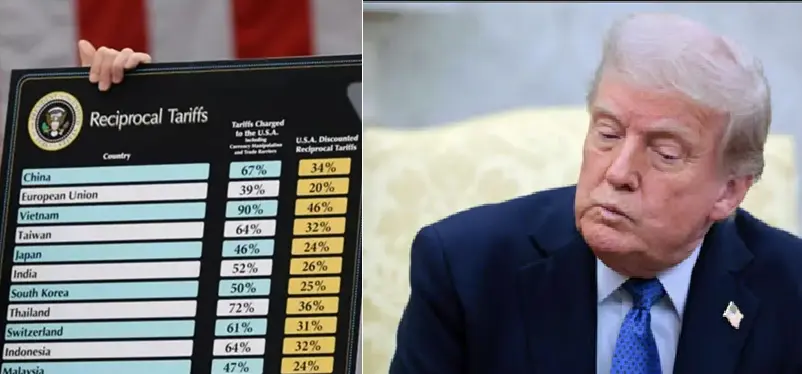
Tariffs are the new weapons of global conflict
Tariffs Over Tanks – In today’s world, wars are not always fought with guns and bombs. Sometimes, they are fought with taxes, trade restrictions, and economic pressure. This kind of war doesn’t make headlines with explosions but it can quietly destroy lives, industries, and entire nations. One such weapon is the tariff – a tax on imported goods. And it’s being used more than ever before.
Tariffs Over Tanks – When Trade Becomes a Battlefield
Recently, U.S. President Donald Trump suggested that if India stops buying oil from Russia, the war between Russia and Ukraine might end. To push this idea, he proposed heavy tariffs up to 50% – on Indian goods. His logic? Cut off Russia’s income from oil, and they’ll be forced to stop the war.
But this raises a big question: Is it fair to punish one country to pressure another?
India buys Russian oil because it’s affordable and helps meet its growing energy needs. If forced to stop, India might face higher fuel prices, inflation, and economic stress. Meanwhile, millions of ordinary people – shopkeepers, farmers, factory workers could suffer. All because of a political decision made thousands of miles away.
This is how trade becomes a battlefield. No bullets are fired, but the damage is real.
The Human Cost of Economic Pressure
When we think of war, we imagine soldiers, tanks, and destruction. But economic warfare can be just as deadly, only slower and less visible.
- Jobs disappear when factories can’t afford raw materials due to tariffs.
- Prices rise when imported goods become expensive.
- Small businesses shut down when they can’t compete.
- Families struggle to afford basic needs.
In this kind of war, the victims are not soldiers—they’re everyday people. And unlike traditional wars, there’s no peace treaty to end the suffering. The damage can last for years.
Imagine a country as a living body. Its economy is the blood that keeps it alive. Tariffs, sanctions, and trade blocks act like wounds—cutting off the flow. Slowly, the body weakens. That’s why some experts say economic warfare is more lethal than guns.
Power Without Explosions: The New Global Strategy
Why are countries using tariffs instead of weapons? Because it’s cleaner, quieter, and often more effective.
- No need for military action: Economic pressure can force governments to change policies without firing a single shot.
- Global influence: Powerful nations can control smaller ones by controlling trade.
- Public support: Economic moves are easier to justify than war.
But this strategy has a dark side. It often hurts the innocent more than the guilty. And it can create long-term resentment between nations.
For example, if India is punished for buying Russian oil, it may feel bullied. That could damage its relationship with the U.S. and push it closer to other allies like China or Iran. In the end, economic warfare can backfire, creating more conflict instead of peace.
Is This Really Peace?
Trump’s idea may sound like a clever shortcut to peace. But is it really peaceful to hurt one country to stop another?
True peace comes from dialogue, understanding, and cooperation not pressure and punishment. If the goal is to end the war in Ukraine, then global leaders must work together not threaten each other.
India has its own challenges and priorities. Asking it to sacrifice its economy for someone else’s war is not just unfair, it’s dangerous. And using tariffs as weapons only adds more pain to an already troubled world.
Final Thought:
In this new age of silent wars, we must ask ourselves, are we building peace, or just shifting the battlefield? Tariffs may not draw blood, but they can still leave scars. And if we’re not careful, the cost of peace might be paid by those who had no part in the conflict.
Also read – Secondary Tariffs, Tensions & Talks: A Risky Gamble to Crush Russia’s War Machine
Stay informed with the latest news and updates – only on Rapido Updates.